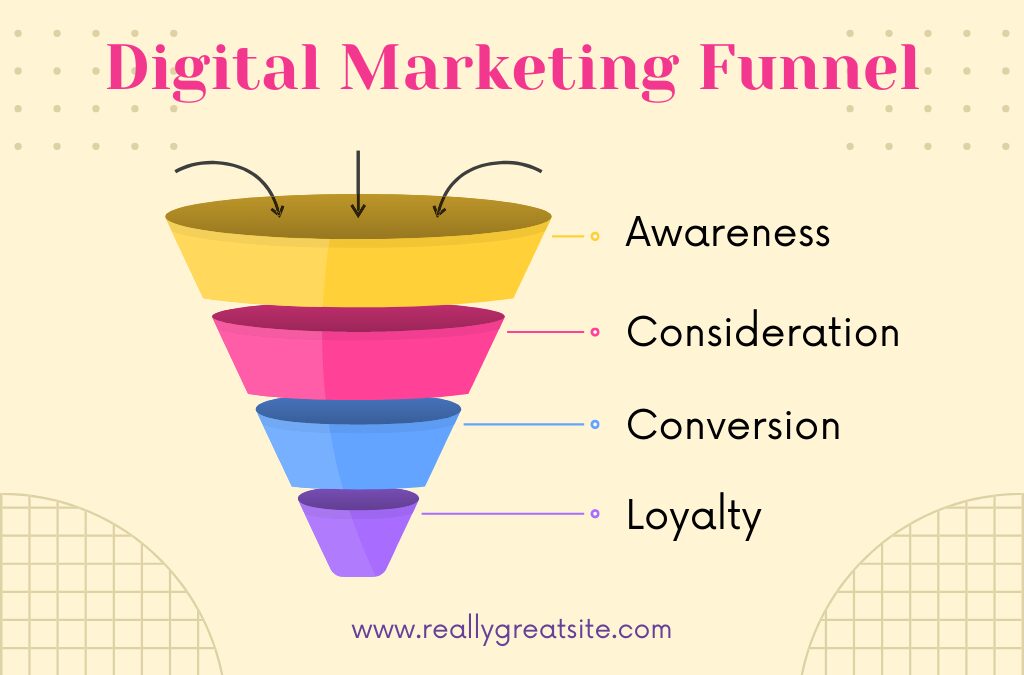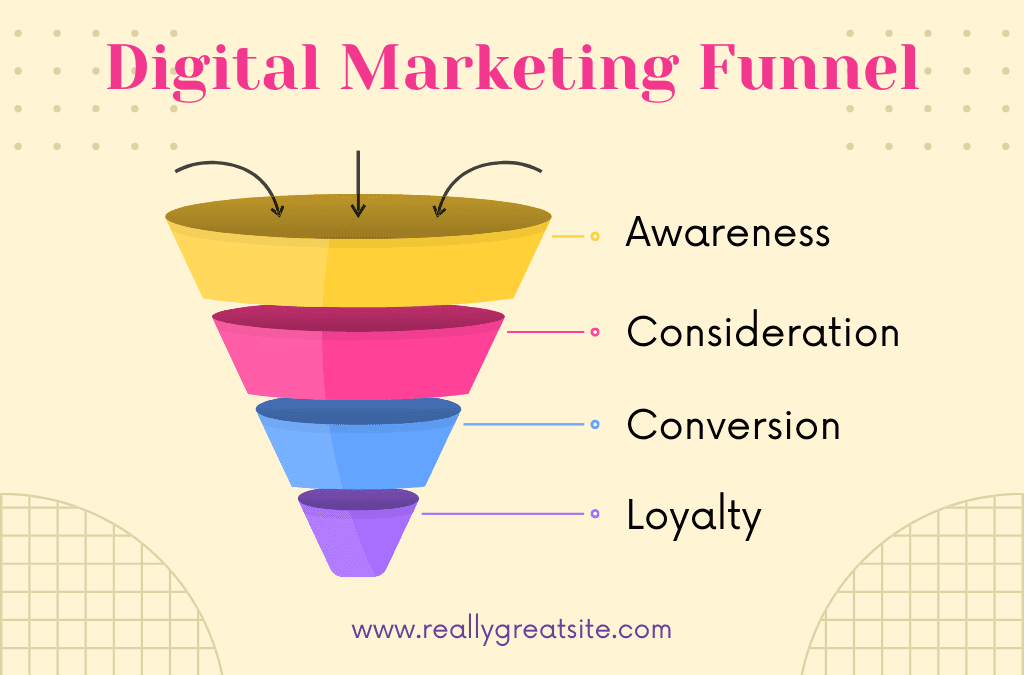One of the first topics discussed in Google’s Assess for Success: Marketing Analytics and Measurement Coursera course is the marketing funnel. The marketing funnel is a visual representation of the process through which a potential customer becomes a loyal and returning customer. Customer loyalty builds brand awareness or an awareness of how the company is perceived by the general public. The marketing funnel is the foundation of digital marketing which is an essential part of today’s modern economy. Digital marketing involves marketing goals through online channels such as email and social media to support and advance business objectives. The marketing funnel has four touchpoints or interaction points along the journey a customer takes before making a purchase. The four touchpoints are awareness, consideration, conversion, and finally loyalty.
The awareness stage at the top or beginning of the marketing funnel is when a potential customer first becomes aware of a product or service. Most people become aware of a company’s products or services through for example television ads, advertisements on video streaming services such as YouTube, internet ads(also known as display ads) on websites they visit, or social media ads on platforms such as X(formerly Twitter) and Meta(formerly Facebook). However, most people in this stage of the marketing funnel are not going to end up purchasing the products or services being advertised. This is why the awareness stage is the largest and widest part of the marketing funnel.
The consideration stage is the second stage of the marketing funnel. The consideration stage is when a potential customer begins building interest in a product or service a company is offering. Strategies and tactics employed by marketers during this stage involve social media marketing, email marketing, webinars, remarketing ads(An ad delivered to previous purchasers, subscribers, or visitors to a company’s website or social media pages), testimonials(reviews or endorsements from customers who have purchased products or services), and case studies. A specific example includes regularly sending newsletters to subscribers on an email list.
The conversion stage is the third stage of the marketing funnel. The conversion stage is when a potential customer takes a desired action such as purchasing products through a company website. Strategies and tactics employed by a company during this stage include optimizing the checkout process, adding better photos, writing more enticing written materials to encourage a customer to buy a product or service, adding live chat to a company website, increasing a website’s speed, offering a trial or money back guarantee.
The loyalty stage is the last stage of the marketing funnel. The loyalty stage is when customer loyalty is established and customers become repeat customers and advocate for the company’s products or services. Strategies and tactics employed by a company during this stage include rewards programs(similar to the rewards programs a grocery store chain like Ralph’s would offer), email marketing, social shares, remarketing customers, encouraging reviews, special offers for birthdays and anniversaries, freebies(like perfume or make-up companies do in magazines geared towards women) and amusing confirmation messages after purchases are made.
To view more blog posts about Divi, SEO, WordPress, WordPress plugins, digital marketing, or other related topics, visit our website’s blog section.


